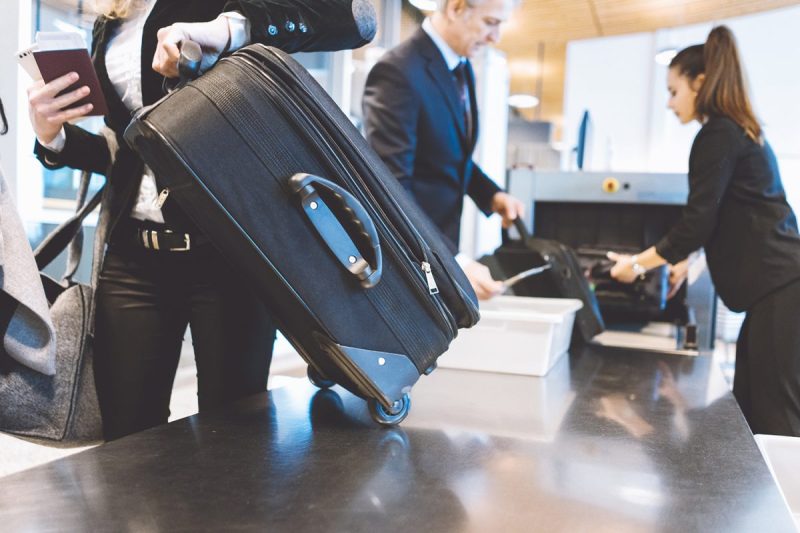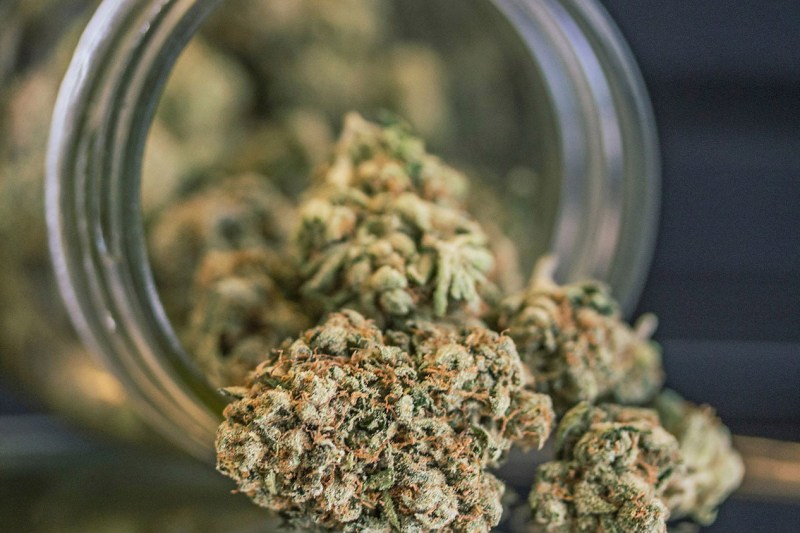Last year, officials at Los Angeles International Airport (LAX) announced a new, thoroughly relaxed policy toward air travelers bringing their weed stash through the airport. Add to that news the fact that more and more U.S. states are opening legal dispensaries, and it’s easy for travelers to assume that every public place is becoming a hazy, free-wheelin’, Willie Nelson-inspired smokehouse. Not so fast. Let’s take a minute to clarify the legalities — or not — of flying in the U.S. with legally purchased marijuana and CBD products.
Let’s dispense with the most clear-cut question and answer: Can the TSA arrest you at the airport for packing marijuana? Thankfully, no. Many passengers are surprised to learn that the agency can’t actually arrest anyone for anything. In fact, their (lack of) power has created enough confusion for the general public that the TSA even published a blog post about it. The gist is that “TSA officers at airport checkpoints do not have the authority to arrest any passenger, regardless of the situation. TSA officers do not carry firearms, billy clubs, mace, stun guns or any other type of weapon. Nor do TSA officers carry handcuffs. They are not authorized to use force in the performance of their duties.”

Further Reading
- What is CBD? A Brief Introduction to the Benefits of Cannabidiol
- The Best Weed Strains for Budding Cannasseurs
When they’re not handing out free puppies, the responsibility of TSA agents is primarily to safeguard the nation’s transportation systems. On a daily basis, they’re only concerned with rooting out guns, battle axes, explosives, and other immediate threats to public safety. The hitch here is that, if they do discover a pot-laden passenger during routine screening, they’re legally bound to hand that passenger over to local authorities. The TSA is crystal clear about the illegality of marijuana and CBD-related products in both checked and carry-on baggage: “Possession of marijuana and cannabis-infused products, such as cannabidiol (CBD) oil, is illegal under federal law. TSA officers are required to report any suspected violations of law, including possession of marijuana and cannabis-infused products.”
In pot-friendly states like Massachusetts and Colorado, local police will often treat a passenger’s stash like a half-full water bottle. Their recommendation will usually be to dump it in the trash, then get back in the security line for rescreening. In states that don’t take kindly to marijuana possession, the local police have the authority to treat passengers like the federal criminals they are. Since marijuana, like heroin and LSD, is still a Schedule 1 drug, that could mean considerable jail time.

Like LAX, a handful of airports around the country have made it clear that, as long as passengers are only in possession of the legal amount in the state in question, everything is cool. San Francisco International, Boston’s Logan International, and Seattle-Tacoma International Airport are three of the most publicly pot-friendly airports in the country. On the other hand, because they’re sensitive to skyrocketing “pot tourism,” Colorado airports like Denver and Colorado Springs are fairly strict about forcing airline passengers to ditch their stash prior to security. Despite its hedonistic reputation, Las Vegas’ McCarran International Airport is among the nation’s toughest on marijuana possession. It’s no surprise, however, when you consider that the city’s casinos are only allowed to operate thanks to gaming licenses granted by the feds.
The short version of all of this is that the TSA is effectively irrelevant when it comes to your sky-high drug trafficking habits within the United States. Local law enforcement is the only concern. If you’re caught flying or trying to fly with weed, your departure and arrival cities don’t matter. It boils down to the local laws that govern the airport you happen to be in when your stash is discovered.
Whatever you do, though, do not ever try to fly internationally with your stash. Unless, of course, a starring role on Locked Up Abroad is still on your bucket list.



